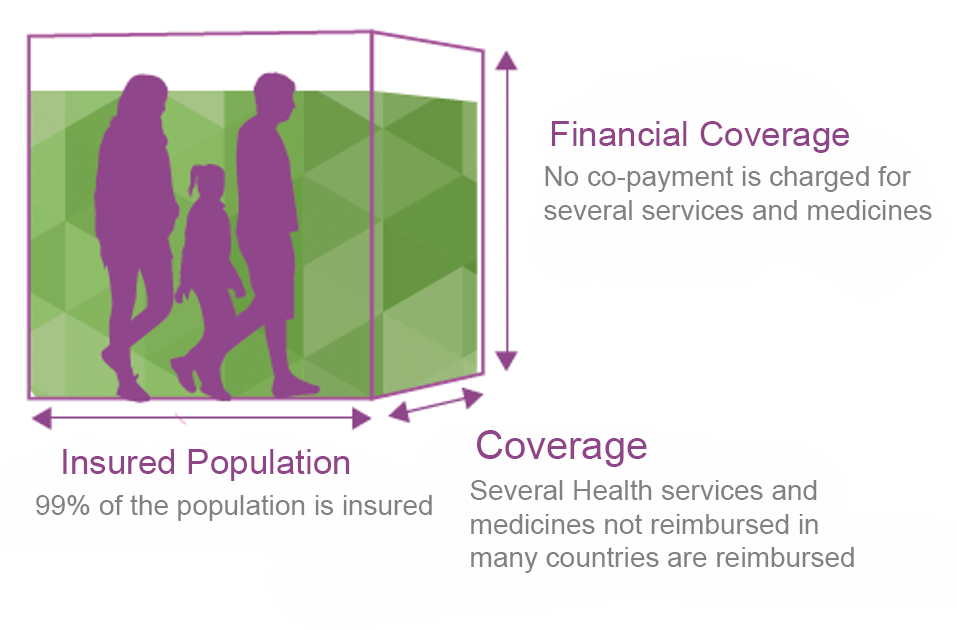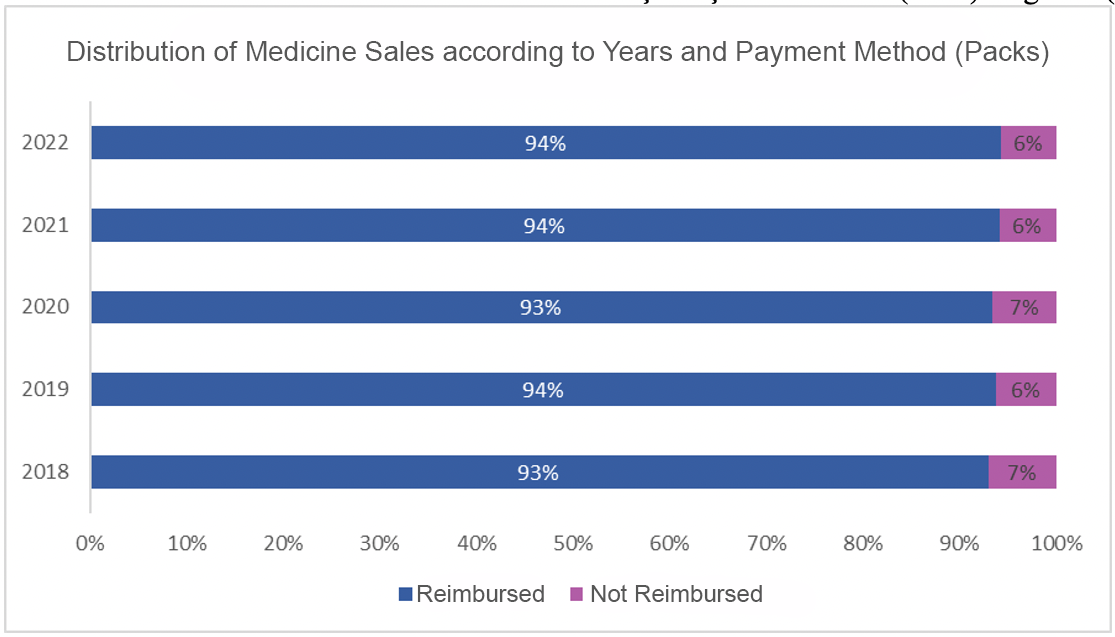UNIVERSAL HEALTH INSURANCE IN TÜRKİYE

Türkiye has a universal health insurance system that covers the entire population and is highly inclusive in terms of the services provided. There are significant risks to the financial sustainability of this system, which provides a wide range of services at very low costs. As in the world, the burden of non-communicable and chronic diseases is increasing in Türkiye. With the increase in life expectancy and the aging of the population, three more issues come to the fore as risk factors.
(i)Chronic diseases
(ii) Obesity rate as a result of physical inactivity and dietary habits
(iii) Tobacco and tobacco product use
In addition to the broad coverage of Universal Health Insurance in Türkiye both in terms of population and services, the very low co-payments for services and products lead to relatively low out-of-pocket expenditures. In Türkiye, drug co-payments are 20% for employees and 10% for pensioners.
While the state finances almost 80% of health expenditures, this ratio is higher for pharmaceutical expenditures. It is estimated that 92% of total pharmaceutical expenditures consist of medicines paid for by the SSI.
Chart: Distribution of Medicine Sales according to Years and Payment Method (Packs) (%)

Source: IQVIA
However, the limits of social health insurance have been reached in Türkiye. Almost the entire population is covered by general health insurance and can access a wide range of services with a limited patient contribution. There are policies where the public sector can both utilize existing resources more efficiently and share the existing burden.
Private insurance is one of the areas where the state can share the social burden. In order to support the sustainability of the social health system with its current service quality and coverage, the private insurance mechanism should be utilized through complementary health insurance and health policies based on income level. Today, the share of private insurance in Türkiye is far from sharing the burden on the social health system. In 2020, the number of people with private health insurance and complementary health insurance in Türkiye is about 4.5 million, which corresponds to about 5.5% of the population.
Another policy to reduce the burden on the social health system is the regulation of over-the-counter medicines and the exclusion of appropriate medicines from the scope of reimbursement.
There are two main policies that stand out for a more efficient use of public resources allocated to health:
1) Focusing especially on adult vaccination programs within the scope of preventive care and achieving the same success in adult vaccination as in child vaccination.
2) Making access to health services more effective by establishing an effective referral chain.
 Türkiye has a universal health insurance system that covers the entire population and is highly inclusive in terms of the services provided. There are significant risks to the financial sustainability of this system, which provides a wide range of services at very low costs. As in the world, the burden of non-communicable and chronic diseases is increasing in Türkiye. With the increase in life expectancy and the aging of the population, three more issues come to the fore as risk factors.
Türkiye has a universal health insurance system that covers the entire population and is highly inclusive in terms of the services provided. There are significant risks to the financial sustainability of this system, which provides a wide range of services at very low costs. As in the world, the burden of non-communicable and chronic diseases is increasing in Türkiye. With the increase in life expectancy and the aging of the population, three more issues come to the fore as risk factors.


